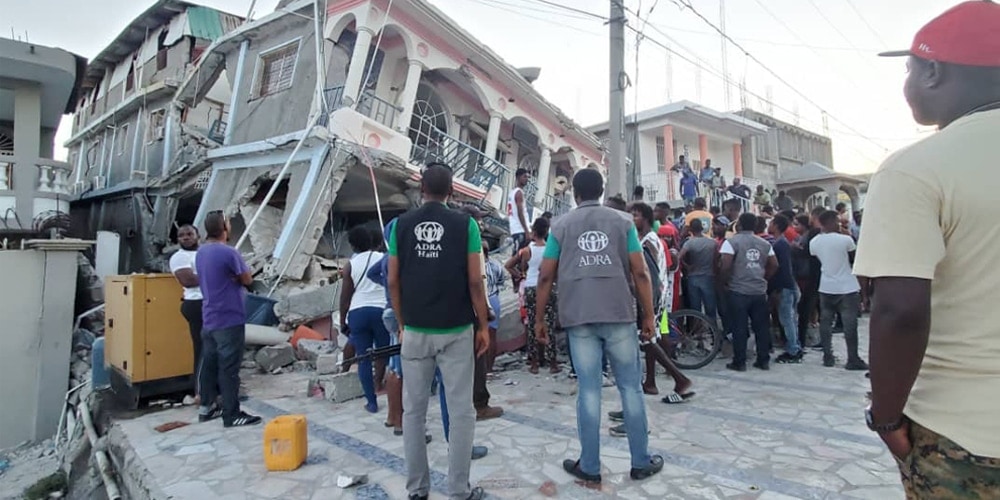
Since a 7.2-magnitude earthquake struck the southern region of Haiti on August 14, 2021, the death toll continues to climb after days of ongoing search-and-rescue efforts. Preliminary reports indicate more than 2,000 deaths, 12,000 injuries, and significant infrastructure loss, with more than 7,000 houses destroyed and more than 12,000 buildings damaged, including hospitals, schools, and churches. There are also reports of road blockages.
The cities of Les Cayes, Camp-Perrin, and St. Louis de Sud in the South department; Jérémie, Beaumont, and Pestel in Grand’Anse department; and Anse-à-Veau, Baraderes, and L’Asile in Nippes department were the hardest hit and suffered extensive damage and destruction to buildings and homes. In Petit-Trou-de-Nippes, there are reportedly downed phone lines, which has left the city with limited communication service. Haiti’s capital city, Port-au-Prince, was rocked by the earthquake, but no significant damages were reported.
Three days after reeling from the recent quake, Haiti was additionally impacted by Tropical Storm Grace, which left torrential flooding in areas of the country, adding to an increase of people in need of humanitarian assistance. On top of this, gang violence has reportedly escalated, displacing more than 19,000 people in the country’s southern peninsula.
“The southern peninsula is a hotspot for gang-related violence and has been unreachable for the past two months due to road blockages and security concerns,” Fritz Bissereth, country director for the Adventist Development and Relief Agency (ADRA) in Haiti, said. “Humanitarian personnel have allegedly been the targets of repeated attacks. Additionally, the surge in COVID-19 cases has tapered off, but the possible displacement of thousands of people has created ripe conditions for a spike in coronavirus infections. It is something that could potentially overwhelm an already weak and overstretched health system that has to assist those injured by the earthquake and tropical storm.” According to local authorities, only 0.1 percent of the population in Haiti is vaccinated.
Government officers will conduct damage assessments. According to local sources, it will take weeks to fully determine the extent of damages and humanitarian needs.
ADRA has been working on several relocation projects to assist internally displaced survivors of gang violence. The agency is working closely with Haiti Adventist Hospital in Diquini, where injured people can receive critical orthopedic medical care and treatment. The hospital has already been filled beyond capacity with many wounded and injured people since the earthquake struck.
“ADRA is working closely with the local Adventist hospital to offer logistical and coordination support and provide assistance for transport, food, and purchase of medicine,” Bissereth said.
He added that as ADRA assesses the needs of affected populations, it will scale up its plans to provide urgent non-food items for up to 6,000 people in St. Louis de Sud, Les Cayes, and Camp-Perrin. Purchases of tents, tarps, shelter kits, food, and water were of great need, according to findings from people impacted in those areas.
“Many people have been affected, and families are still recovering, some of whom are trying to make sense of the devastation and unfathomable loss of loved ones,” David Poloche, ADRA’s regional director for the Inter-American Division of the Adventist Church, said. “Thank you to everyone who has fervently been praying for Haiti and ADRA. We continue to appeal for your thoughts and prayers as we find the strength to help people in Haiti recover through these unforeseeable ordeals. As we join forces with local officials, the Adventist Church, partners, and other agencies, what matters most is working together to ensure people in Haiti get immediate access to essential items and receive ongoing aid in hopes of getting to a recovery stage.”
The original version of this story was posted by the Adventist Development and Relief Agency.